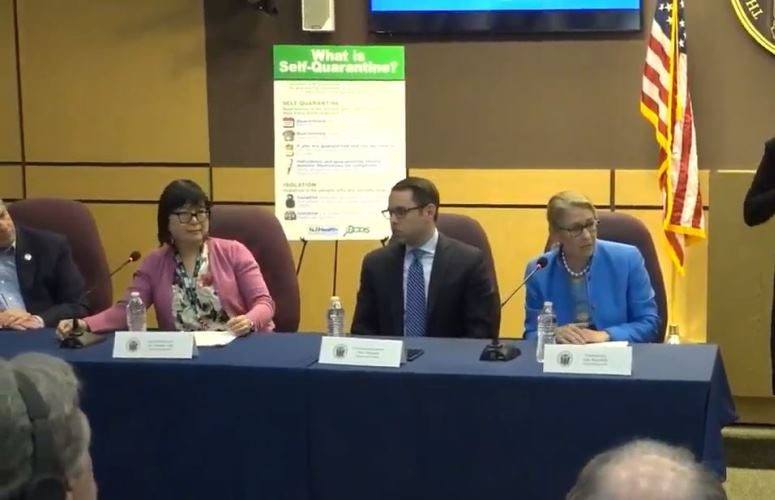
COVID-19 Cases in NJ Increase; Port Authority Director Tests Positive
By George N. Saliba, Managing Editor On Mar 9, 2020The total number of global COVID-19 cases has increased from approximately 87,000 to 113,600 in the past seven days. And while New Jersey had no confirmed cases one week ago, it now has 11 presumptive positive cases, New Jersey Department of Health Commissioner Judith Persichilli said at a press conference today.
Five of the 11 cases were discovered in the past 24 hours, and additionally, some 24 people are under investigation and will be tested by the state laboratory, Persichilli said.
She added that the state does “not know what is pending in the commercial labs,” meaning that more cases are possible.
The Port Authority of New York & New Jersey meanwhile announced that its executive director Rick Cotton has tested positive for novel coronavirus, although it added that “Mr. Cotton is currently asymptomatic and has self-quarantined at his home while maintaining a full schedule.”
Persichilli said overall, “The fact that we are continuing to see additional cases is concerning, but it is not unexpected. It follows the trend that we are seeing around the rest of the country, and, in fact, the world.”
Based on current developments, she said the state is strengthening its public health strategy to include not only all of its various containment (“stopping”) steps, but it is also looking at mitigation (“controlling”) interventions.
Screening at 11 funneled airports has been in place since February 2, and the state has been monitoring individuals who traveled to impacted countries, or who had contact with a confirmed case.
Close contacts of an infected person are asked to self-quarantine for a period of up to 14 days, and, if necessary, a public notification will be issued, Persichilli said.
“If you need to isolate, we are suggesting everyone be prepared,” she said. “Consider what you may need, if you require a 14-day quarantine. Stock up on a two-week supply of food and water. Make sure you have a two-week supply of your prescription medications, and non-prescription medications geared toward fever reducing.”
She also explained, “Social distancing interventions can include things like workplace accommodations; telecommunicating; school closures and/or dismissals; day care center closures; screening visitors at long-term care facilities, or – depending on the inhabitants of the long-term care facilities, and vulnerable persons – actually restricting visitors.”
She said a conference call with 408 long-term care providers in New Jersey was conducted today, to share the above initiatives with them.
The Department of Health is available to discuss mitigation and has established an overall e-mail address: [email protected]
To access more business news, visit NJB News Now.
Related Articles:





